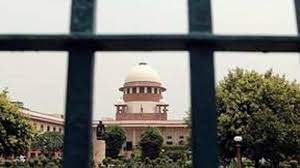(A) Arbitration and Conciliation Act, 1996, Section 11(6), 43 – Limitation Act, 1963, Article 137 – Appointment of arbitrator –Limitation – Whether the Limitation Act, 1963 is applicable to an application for appointment of arbitrator under Section 11(6) of the Act, 1996? If yes, whether the present petition is barred by limitation? – Notice for invocation of arbitration was issued by the petitioner to the respondent on 24.11.2022, proposing the names of two learned arbitrators and calling upon the respondent to either release the allegedly withheld payment or nominate an arbitrator from their side within a period of 30 days from the date of receipt of the notice – As per the record, the notice was delivered to the respondent on 29.11.2022 – Said period of one month from the date of receipt came to an end on 28.12.2022 – Held that it is only from this day that the clock of limitation for filing the present petition would start to tick – The present petition was filed by the petitioner on 19.04.2023, which is well within the time period of 3 years provided by Article 137 of the Act, 1963 – Thus, the present petition under Section 11(6) of the Act, 1996 cannot be said to be barred by limitation. (Para 60 and 62)
(B) Arbitration and Conciliation Act, 1996, Section 11(6), 21 – Appointment of arbitrator – Limitation – Held that while considering the issue of limitation in relation to a petition under Section 11(6) of the Act, 1996, the courts should satisfy themselves on two aspects by employing a two-pronged test – first, whether the petition under Section 11(6) of the Act, 1996 is barred by limitation; and secondly, whether the claims sought to be arbitrated are ex-facie dead claims and are thus barred by limitation on the date of commencement of arbitration proceedings – If either of these issues are answered against the party seeking referral of disputes to arbitration, the court may refuse to appoint an arbitral tribunal. (Para 89)
(C) Arbitration and Conciliation Act, 1996, Section 11(6), 21 – Limitation Act, 1963, Article 137 – Appointment of arbitrator – Limitation – Whether the court may refuse to make a reference under Section 11 of Act, 1996 where the claims are ex-facie and hopelessly time-barred? – ICCR made payment to the respondent on 03.10.2017 – However, the right of the petitioner to raise the claim could only be said to have accrued after the petitioner made a positive assertion in March, 2018 which was denied by the respondent vide email dated 28.03.2018 – In ordinary circumstances, the limitation period available to the petitioner for raising a claim would have come to an end after an expiry of three years, that is, on 27.03.2021 – However, in March 2020, the entire world was taken under the grip of the deadly Covid-19 pandemic bringing everyday life and commercial activity to a complete halt across the globe – Taking cognisance of this unfortunate turn of events, this Court vide order dated 23.03.2020 passed in Suo Motu Civil Writ Petition No. 03/2020 directed the period commencing from 15.03.2020 to be excluded for the purposes of computation of limitation – The said extension of limitation was extended from time to time by this Court in view of the continuing pandemic – As a result, the period from 15.03.2020 to 28.02.2022 was finally determined to be excluded for the computation of limitation – It was provided that the balance period of limitation as available on 15.03.2020 would become available from 01.03.2022 – The balance period of limitation remaining on 15.03.2020 can be calculated by computing the number of days between 15.03.2020 and 27.03.2021, which is the day when the limitation period would have come to an end under ordinary circumstances – Held that the balance period thus comes to 1 year 13 days – This period of 1 year 13 days becomes available to the petitioner from 01.03.2022, thereby meaning that the limitation period available to the petitioner for invoking arbitration proceedings would have come to an end on 13.03.2023 – Notice invoking arbitration was received by the respondent on 29.11.2022, which is within the three-year period from the date on which the cause of action for the claim had arisen – Thus, it cannot be said that the claims sought to be raised by the petitioner are ex-facie time-barred or dead claims on the date of the commencement of arbitration. (Para 81, 82, 84 and 88)
(D) Arbitration and Conciliation Act, 1996, Section 11(6), 21, 43 – Limitation Act, 1963, Article 137 – Appointment of arbitrator – Limitation – Held that the applicability of Section 137 to applications under Section 11(6) of the Act, 1996 is a result of legislative vacuum as there is no statutory prescription regarding the time limit -Reiterated that the period of three years is an unduly long period for filing an application under Section 11 of the Act, 1996 and goes against the very spirit of the Act, 1996 which provides for expeditious resolution of commercial disputes within a time-bound manner – Various amendments to the Act, 1996 have been made over the years so as to ensure that arbitration proceedings are conducted and concluded expeditiously – Parliament should consider bringing an amendment to the Act, 1996 prescribing a specific period of limitation within which a party may move the court for making an application for appointment of arbitrators under Section 11 of the Act, 1996. (Para 94)
SUPREME COURT OF INDIA
2024 STPL(Web) 134 SC
[2024 INSC 155]
M/S Arif Azim Co. Ltd Vs. M/S Aptech Ltd
Arbitration Petition No. 29 of 2023-Decided on 1-3-2024
https://stpllaw.in/wp-content/uploads/2024/04/2024-STPLWeb-134-SC.pdf







